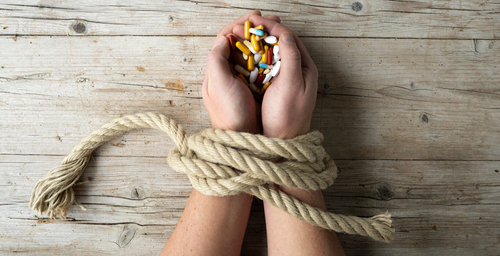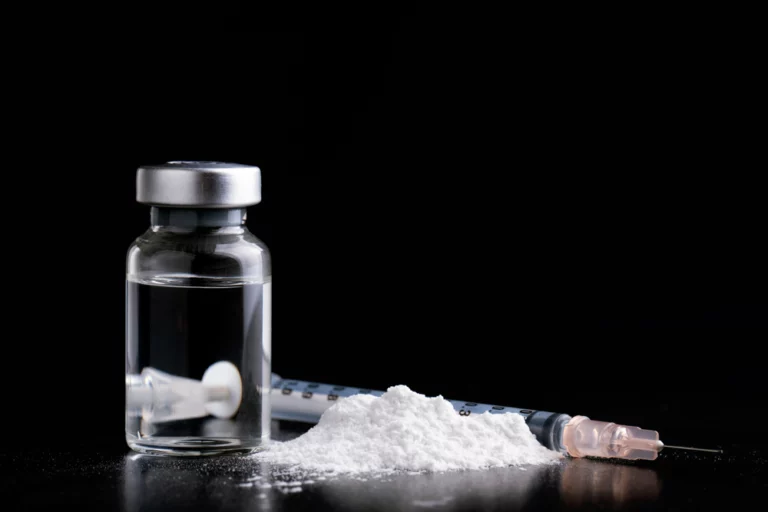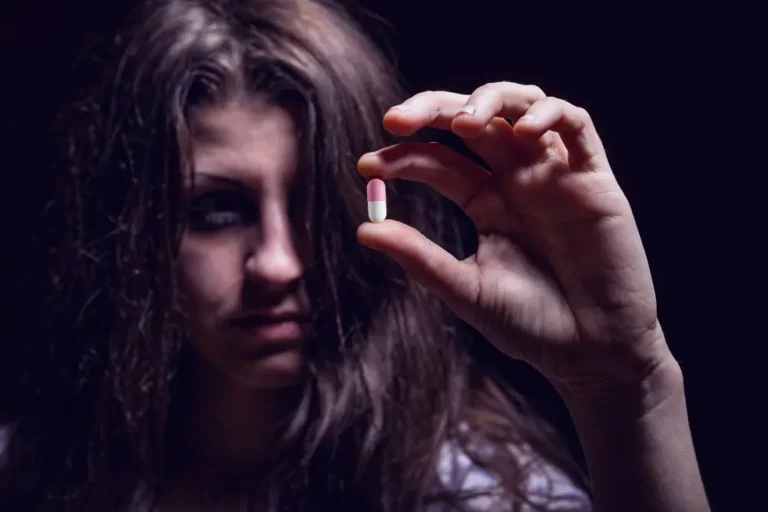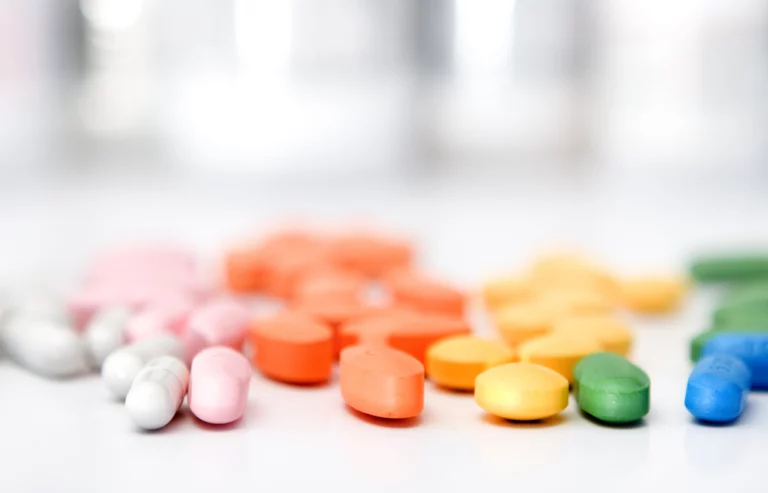In the intricate landscape of human behavior, addiction and obsession often intertwine, creating a tapestry of complexity that challenges our understanding. As addiction experts here at Knoxville Recovery Center, we wrote this article to explore the subtle nuances that separate addiction from an obsession and the intricate web they weave within the human psyche. First, here’s a mini takeaway of what you’ll learn in this article.
Addiction is a behavior focused on physical and psychological dependence. Obsession is marked by intrusive thoughts leading to repetitive behaviors, distinct from chemical dependence. Neural mechanisms, behavioral patterns, and treatments differ, with addiction linked to neural adaptations and obsession with hyperactivity in specific brain regions. With the starting point covered, let’s dive deeper and discover more about these two potentially destructive behaviors.

What Is An Addiction?
Addiction can feel like you are caught up in a never-ending loop of chasing pleasure even when you know it’s causing problems. That irresistible pull keeps you hooked, shrugging off the downsides that come with it. This magnetic force pulls you in, making you crave that hit of satisfaction, all while the consequences are waving red flags. It’s a wild ride, and breaking free from it becomes a challenge that’s easier said than done. Here’s how one 2016 study medically defines addiction. “Addiction involves changes in the brain’s reward, motivation, and memory circuits, contributing to persistent drug-seeking behaviors.” Here are a few examples of different types of addictions.
- Substance Addiction: An addiction to illicit and prescription drugs (e.g., opioids, cocaine, amphetamines) is characterized by physical and psychological dependence.
- Gambling: This behavioral addiction is when individuals compulsively engage in gambling activities despite negative consequences such as excessive spending and debt and the inability to control the behavior.
- Food: Characterized by an unhealthy relationship with food, this involves overeating, binge eating, or other problematic eating behaviors leading to physical and emotional distress.
- Alcohol: Involving a compulsive need to consume alcohol, often leading to tolerance, withdrawal symptoms, and adverse effects on health and daily functioning.
- Internet and Technology: Excessive use of the internet, social media, or video games that interferes with daily life and responsibilities.

What Is An Obsession?
Obsession, on the other hand, refers to intrusive and unwanted thoughts that lead to repetitive behaviors. Although these two types of behavior share some similarities, a 2014 study highlights how obsessive-compulsive disorder (OCD) involves “Distressing obsessions and ritualistic compulsions, which is distinct from the chemical dependence seen in addiction.” Obsession takes you on a mental rollercoaster, where intrusive thoughts hijack your mind, barging in uninvited and refusing to leave! It’s like having a song stuck in your head, but instead of a catchy tune, it’s a loop of thoughts that won’t quit. These thoughts become the unruly directors of a play you never signed up for, pushing you into a cycle of repetitive behaviors, like checking and rechecking, in an attempt to gain control over the relentless mental intruders.
For example, imagine constantly worrying about whether you turned off the stove, leading you to check it repeatedly even though you know you did. That’s the grip of obsession – a relentless tug-of-war between your thoughts and actions. Here are some other examples of obsessive behaviors so you can see more easily how they differ from addiction.
- Washing: Engaging in repetitive and excessive handwashing or cleaning rituals, driven by obsessive fears of contamination, infections, or germs.
- Ordering/Arranging: Arranging objects in a specific, rigid, or symmetrical order with the belief that doing so will prevent something negative from happening.
- Checking: Constantly verifying and rechecking activities, such as making sure doors are locked or appliances are turned off, even when there is no rational need for it.
- Counting: Feeling compelled to count specific objects or perform numerical rituals, often to alleviate anxiety or prevent perceived harm.
- Hoarding: Accumulating and holding onto items, even those with little or no value, due to an intense fear of discarding something important or a belief that the items may be needed in the future.
Is Addicted And Obsessed The Same Thing?
No, addiction and obsession are not the same thing. Addiction is a complex condition characterized by the compulsive use of substances or other types of behaviors despite negative consequences. It often involves physical dependence, tolerance, and withdrawal symptoms. Substance addictions, like drugs or alcohol, can have profound physiological effects on the body.
On the other hand, obsession is a mental state where persistent and distressing ideas, images, or impulses dominate an individual’s thoughts. Obsessive thoughts can interfere with daily life and may lead to ritualistic behaviors or mental acts performed to alleviate anxiety.
As addiction is rooted in physical and chemical aspects, obsession is more centered on cognitive and emotional patterns. Both can significantly impact a person’s well-being and can require professional treatment or medication for effective management. Let’s find out more about some of the differences between addiction and obsession according to science and medicine.
Read more: How to Help an Alcoholic Who Doesn’t Want Help
What Are Neural Mechanisms?
Neural mechanisms are like the brain’s tools and processes that help us do things and think. According to research and recent studies, addiction can change the functioning and effectiveness of neurotransmitters in our brains. This is true of both drug addiction and other types, such as gambling. Obsession, conversely, has been linked to hyperactivity in specific brain regions, as explored in an older study.
What Are Behavioral Patterns?
Addictive behaviors often follow a pattern of escalating substance use and other harmful addictive behaviors, whereas obsession manifests itself as repetitive mental rituals, as we’ve discovered above. One comprehensive review in 2017 highlights how these behavioral patterns typically feel unmanageable and induce a sense of powerlessness.

How To Treat An Addiction Vs. Obsession
Research from Yale University published in the American Journal Of Psychiatry shows the importance of tailored interventions for anyone who has an addiction, focusing on motivational enhancement and cognitive-behavioral strategies. “Tailored interventions” are personalized treatment plans made just for you, considering your unique needs or situation. It’s a customized approach to help you in the best way possible.
Motivational enhancement refers to techniques or approaches designed to boost an individual’s motivation to make positive changes in their behavior, and cognitive-behavioral strategies are tools that blend thinking and actions to improve how we feel and behave. They help find and change negative thoughts and behaviors, promoting a positive mindset and personal growth. Studies related to obsession found that exposure and response prevention therapy works well.
This means tackling those repetitive thoughts and actions head-on. Now that you can understand these two types of behavior more clearly, where can you find help and begin your treatment plan and journey toward recovery?
Read more: Exploring Sobriety: Why Does My Body Feel High When I’m Not?
How Can Knoxville Recovery Center Help?
Our healing and improvement specialists at Knoxville Recovery Center are committed to creating a secure and supportive space for those seeking treatment for addiction or co-occurring disorders. Through unmatched expertise and personalized care, we ensure each client can embrace a life in recovery. You don’t have to face this journey alone. Our treatment center aims to offer premium support and acknowledge that feelings of shame, guilt, and isolation are often linked with addiction.
Some of our services include residential addiction treatment, on-site medical detox, and aftercare planning, which help establish lasting change and recovery:
- Residential Addiction Treatment: Knoxville Recovery Center provides a secure and supportive environment where individuals can immerse themselves in a structured program. The residential setting ensures a focused, distraction-free space for clients to engage in intensive therapeutic interventions, group sessions, and skill-building activities.
- On-Site Medical Detox: Recognizing the critical role of a safe and supervised detoxification process, the center offers on-site medical detox services. Experienced medical professionals are available to monitor and manage withdrawal symptoms, ensuring a more comfortable and secure transition into the early stages of recovery.
- Aftercare Planning: The commitment to recovery extends beyond the residential phase with a robust aftercare planning component. Our recovery professionals work collaboratively with clients to develop personalized aftercare plans, ensuring a seamless transition back into daily life while maintaining a strong support system.
If you are looking for information on our diverse treatment programs or have questions about the center, please feel free to reach out. You can either give us a call or contact us here, and one of our highly qualified team members will be in touch.








